HC Verma Class 11 Physics Solutions Chapter 13: Fluid Mechanics
HC Verma Solutions of Concept of Physics Part 1 Chapter -13 Fluid Mechanics
HC Verma Solutions for Vol 1 & 2 – Free PDF Download
HC Verma Class 11 Physics Solutions Chapter 13: Fluid Mechanics PDF
This page has detailed, step-by-step explanations of every question in HC Verma Class 11 Physics Solutions Chapter 13. For example, in the chapter “Fluid Mechanics” which is the first chapter of Volume 1 of HC Verma’s concept of physics for jee, all of the questions are solved and the steps are explained to help you learn. Utopper is a smart way for students to go over the whole Physics Syllabus again and again. The questions and answers help them study in a way that will help them do well on their tests.
In the HC Verma Class 11 Physics Solutions Chapter 13 “Fluid Mechanics” concept of physics, all of the questions are solved and the steps are explained to help you learn. On the Utopper website where students can get free Reference Book Solutions and other study materials like Revision notes, Sample papers, and Important Questions. Science will be easier to learn if you have access to HC Verma Solutions and solutions for other courses.
Click here to Buy Online – HC Verma Solutions Volume 1 Book
Here is a pdf of HC Verma Class 11 Solutions for Chapter 13: Fluid Mechanics
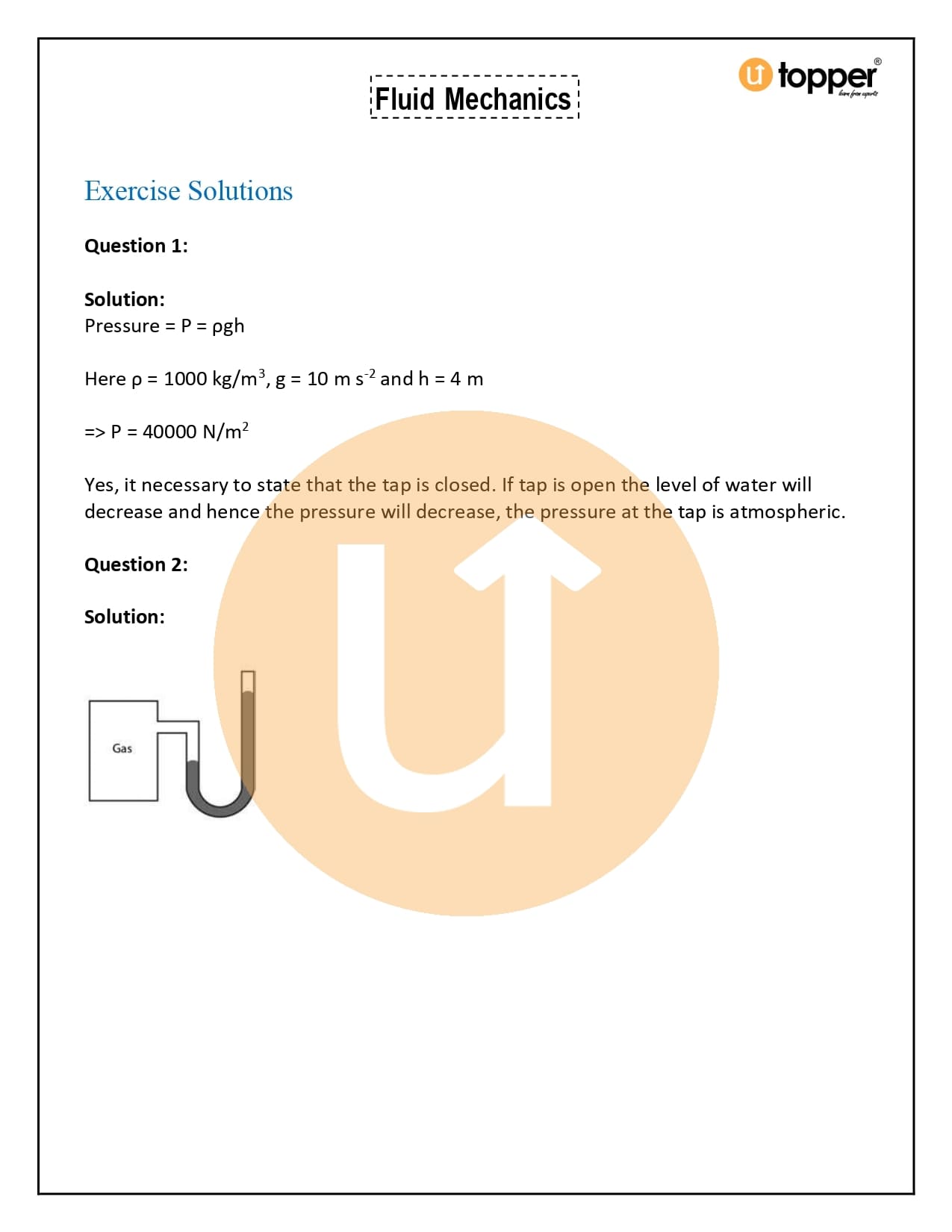
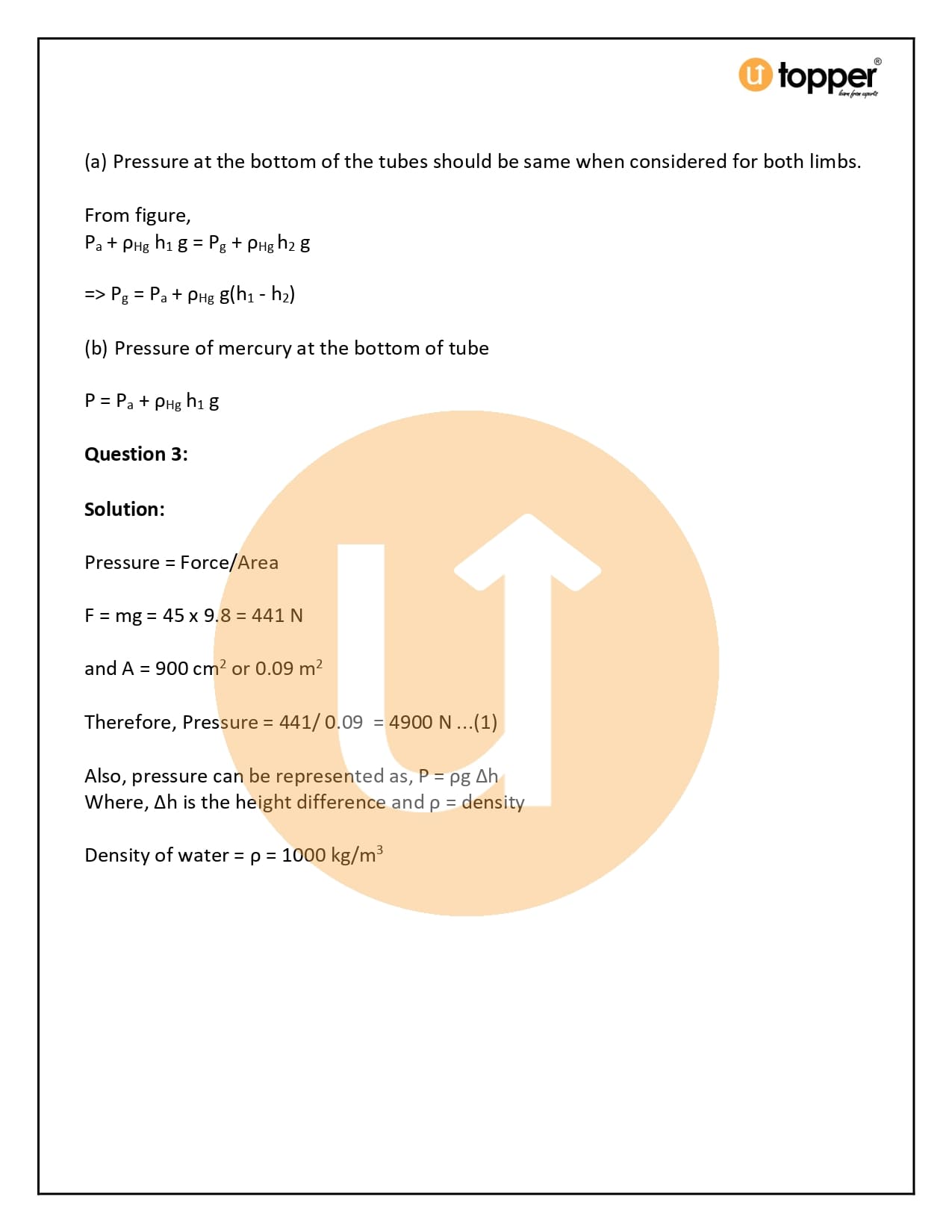
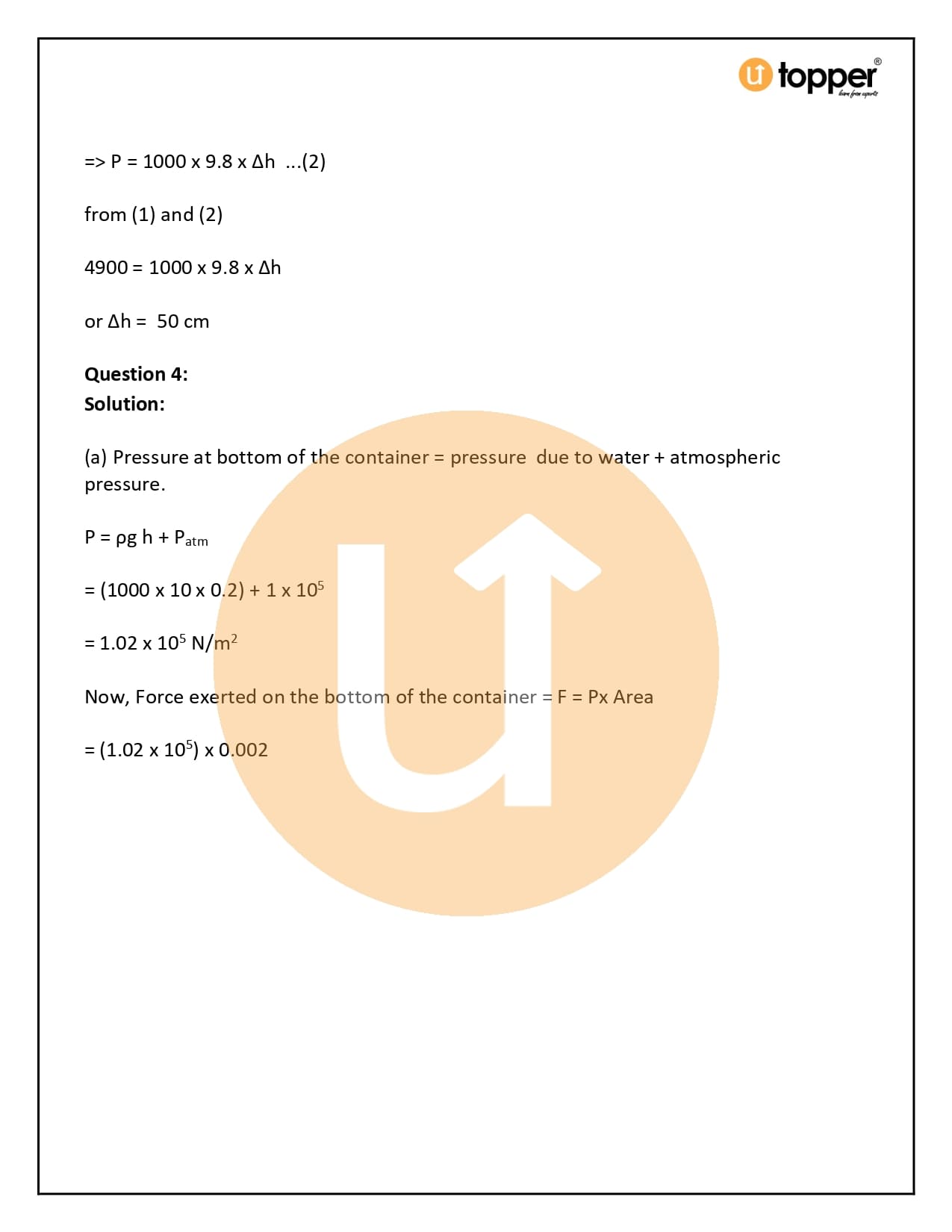
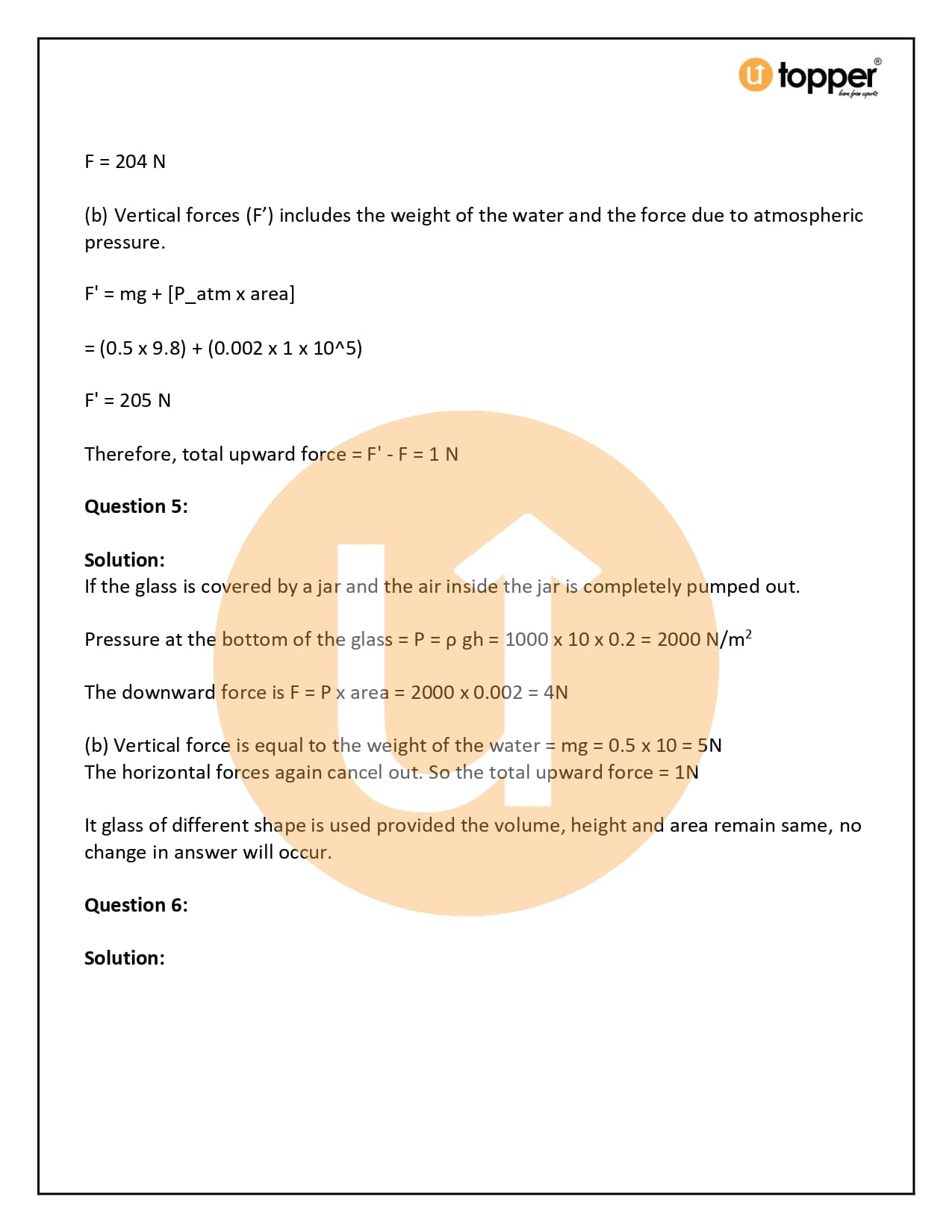
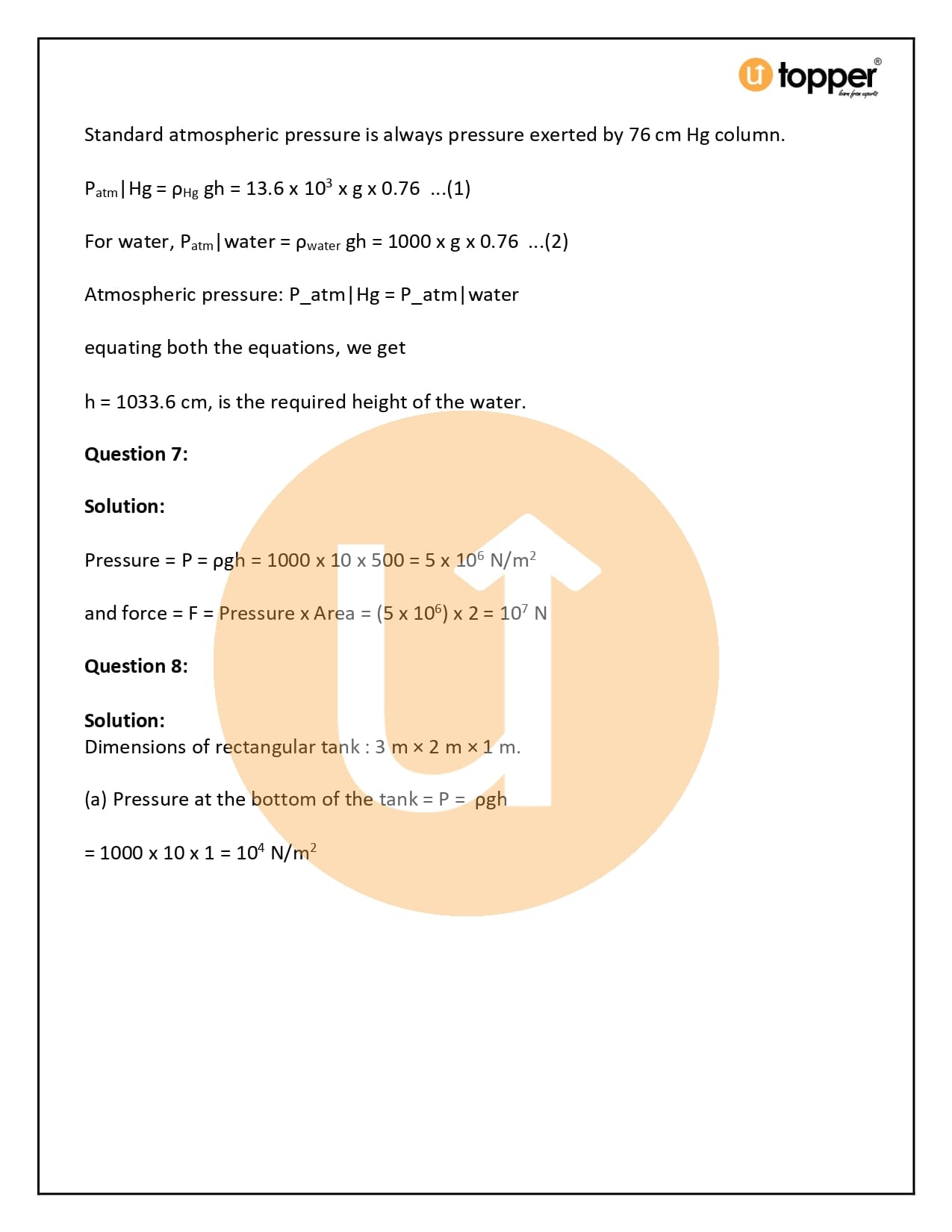
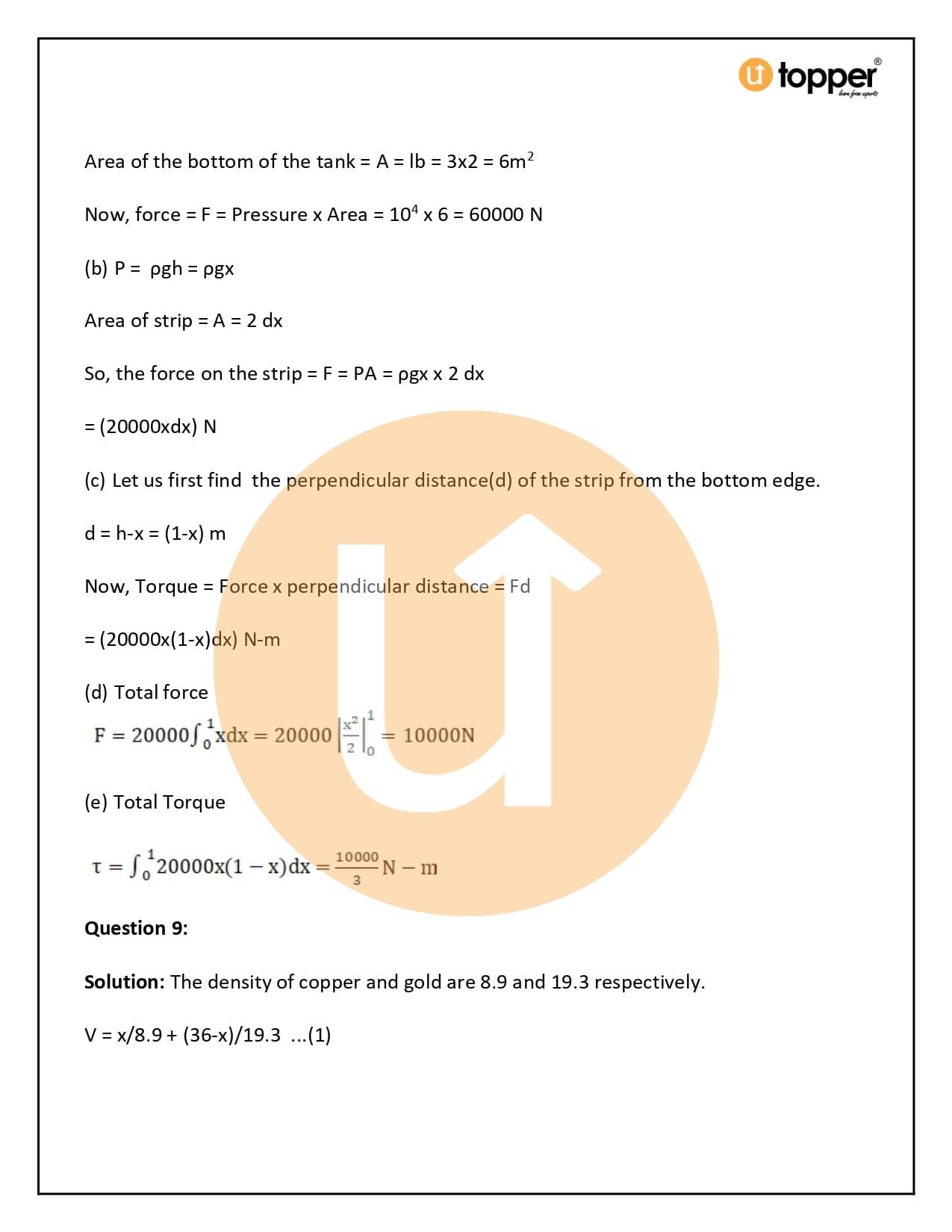
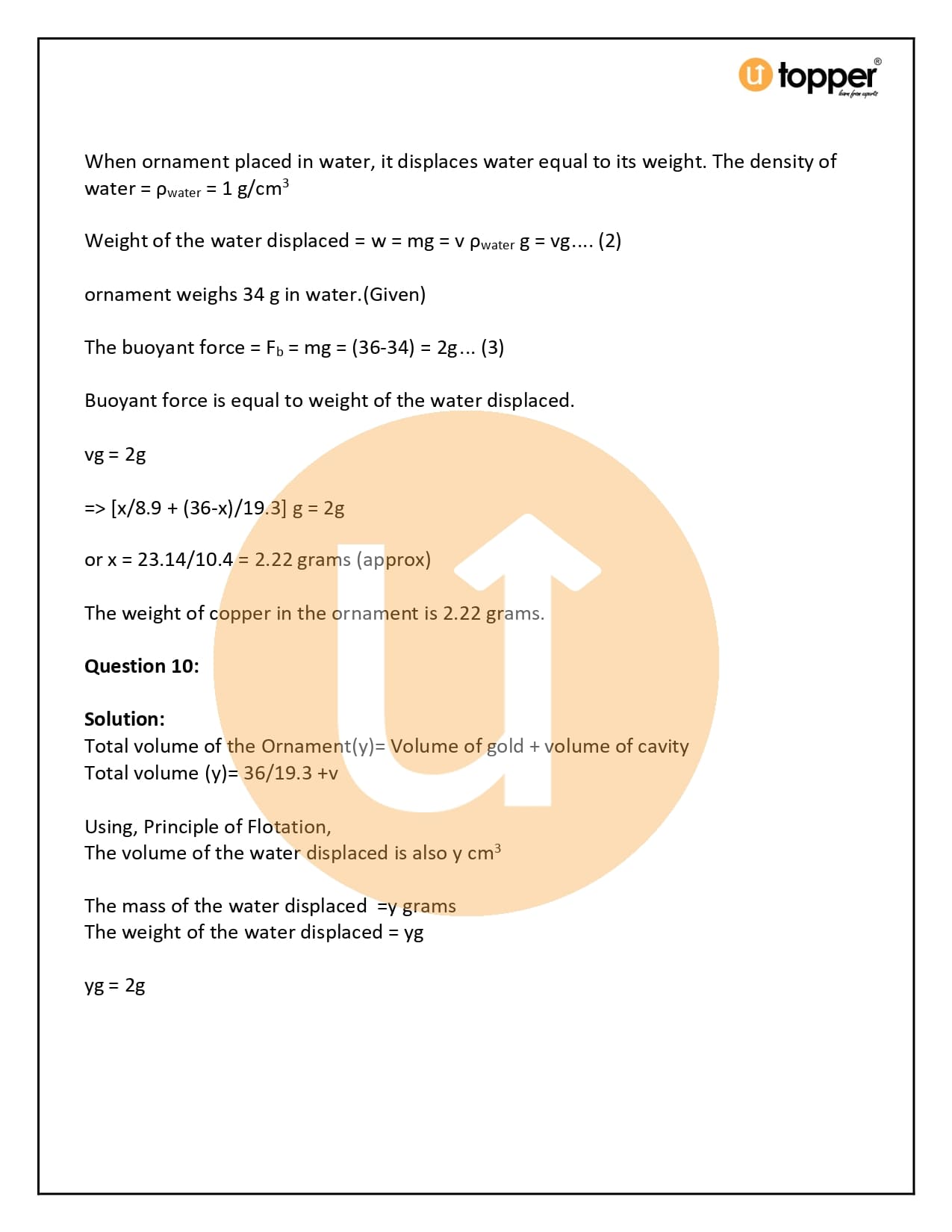
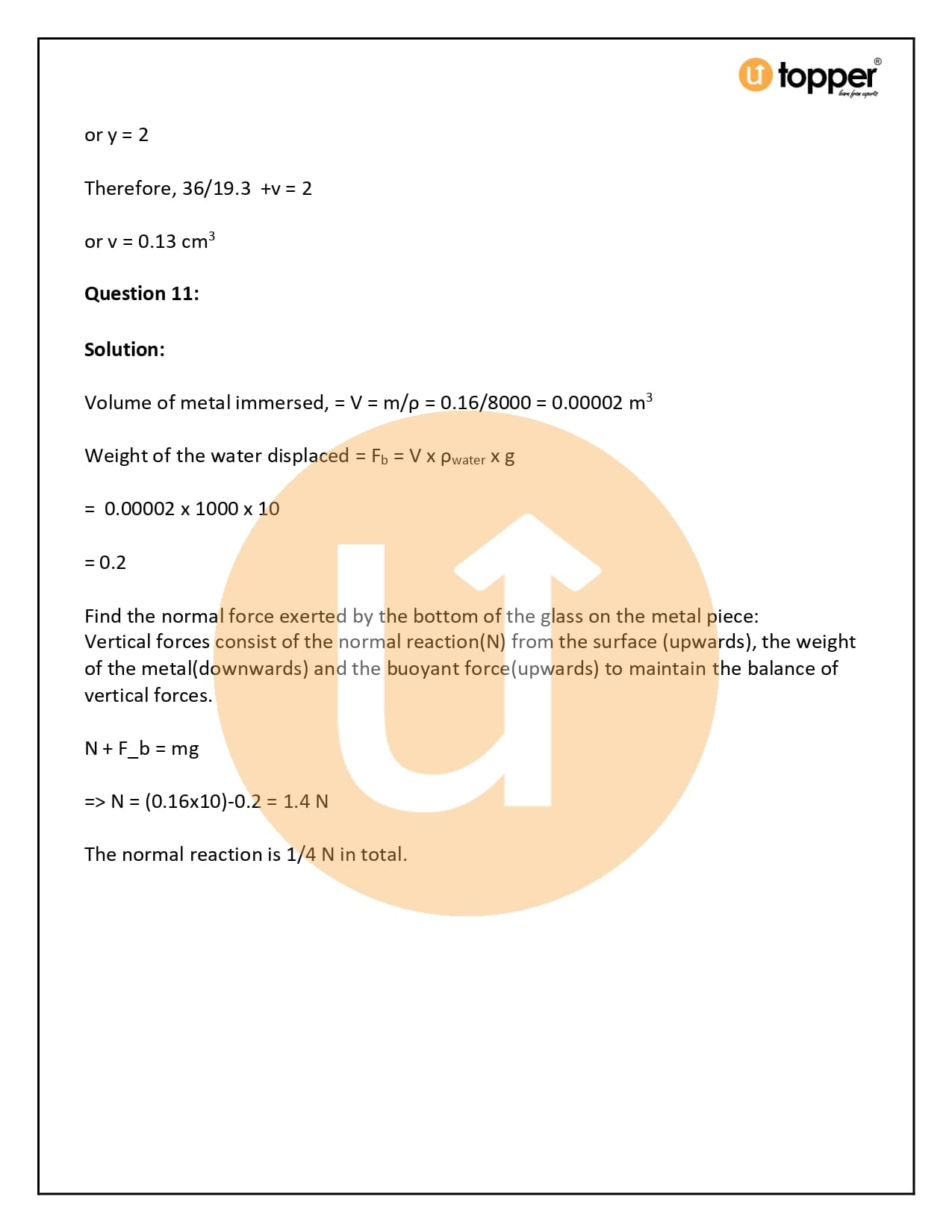
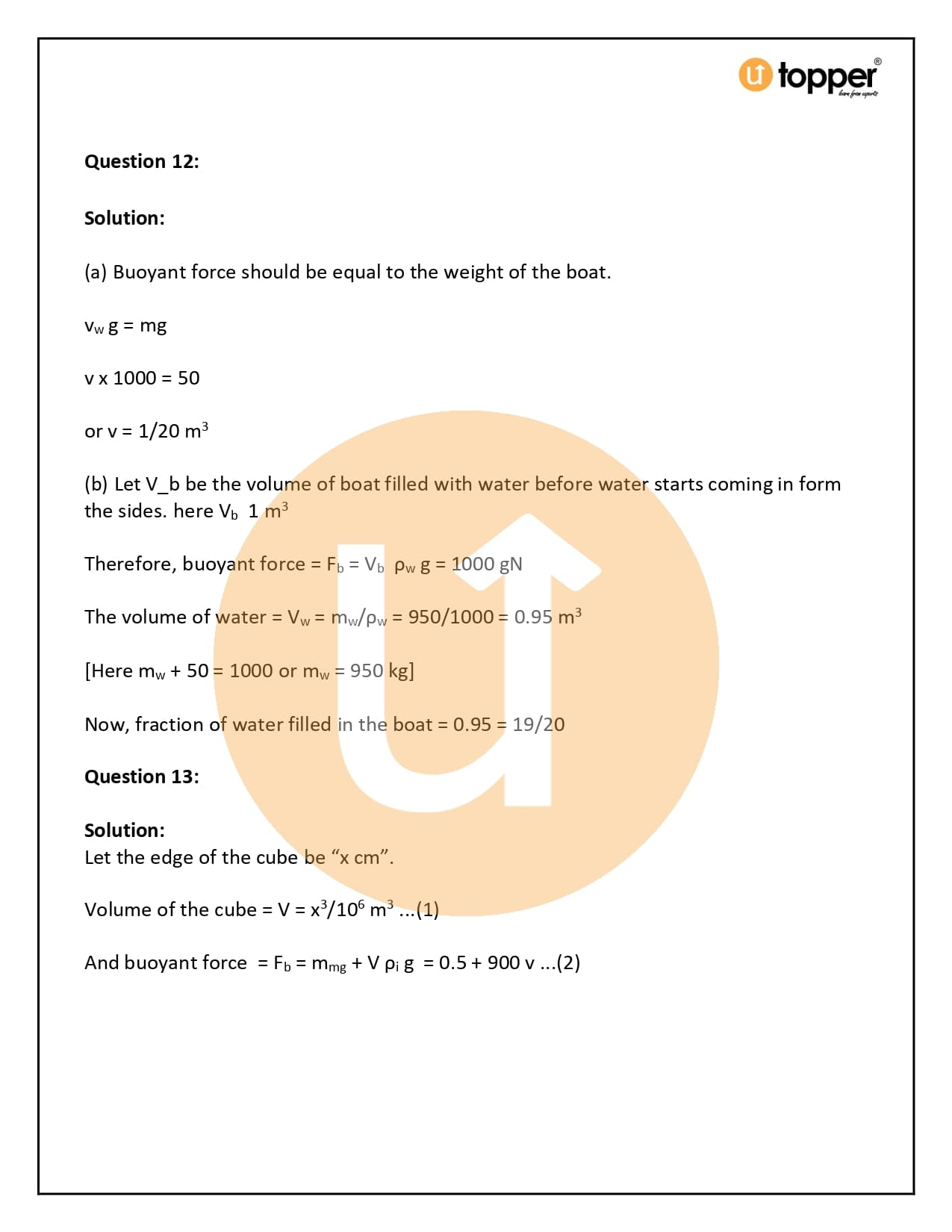
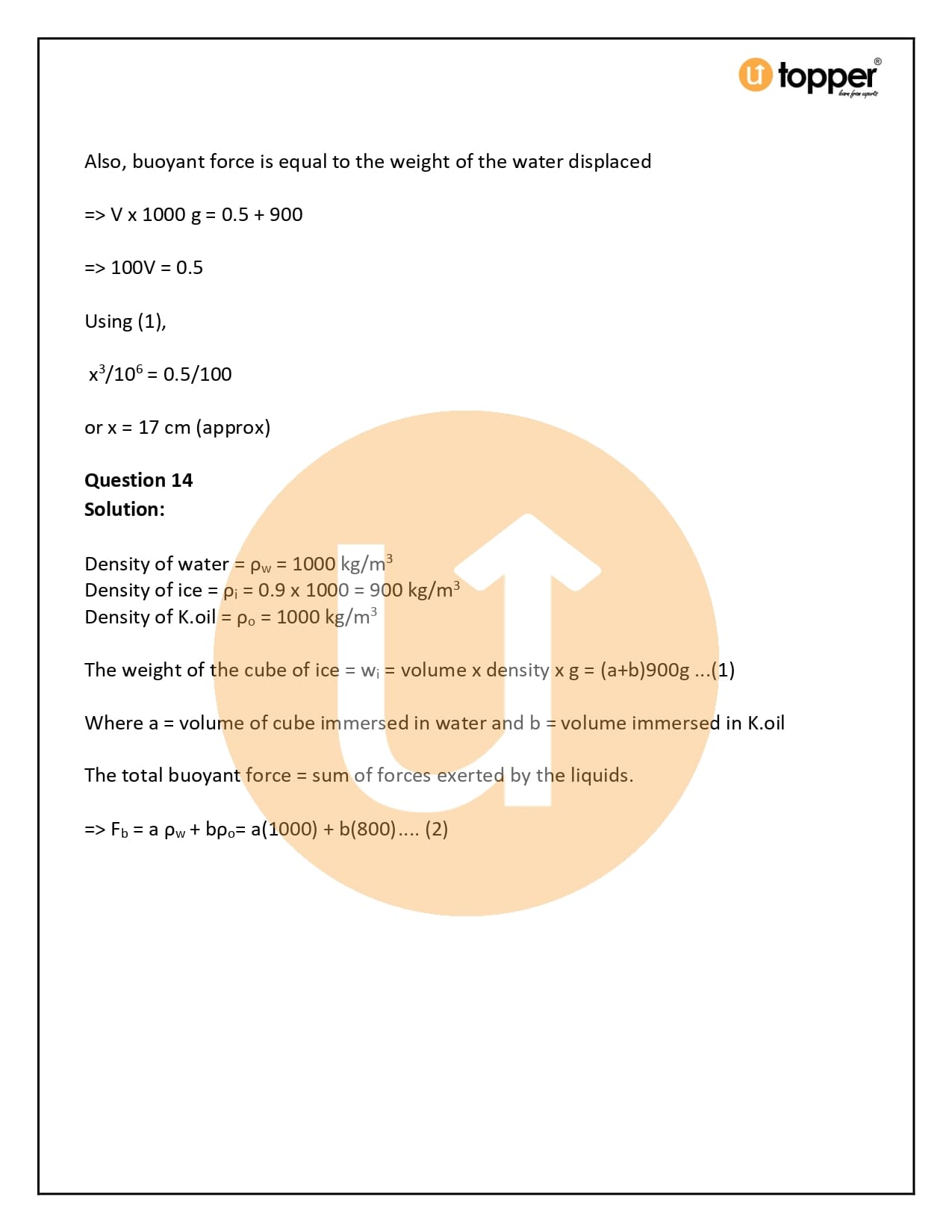
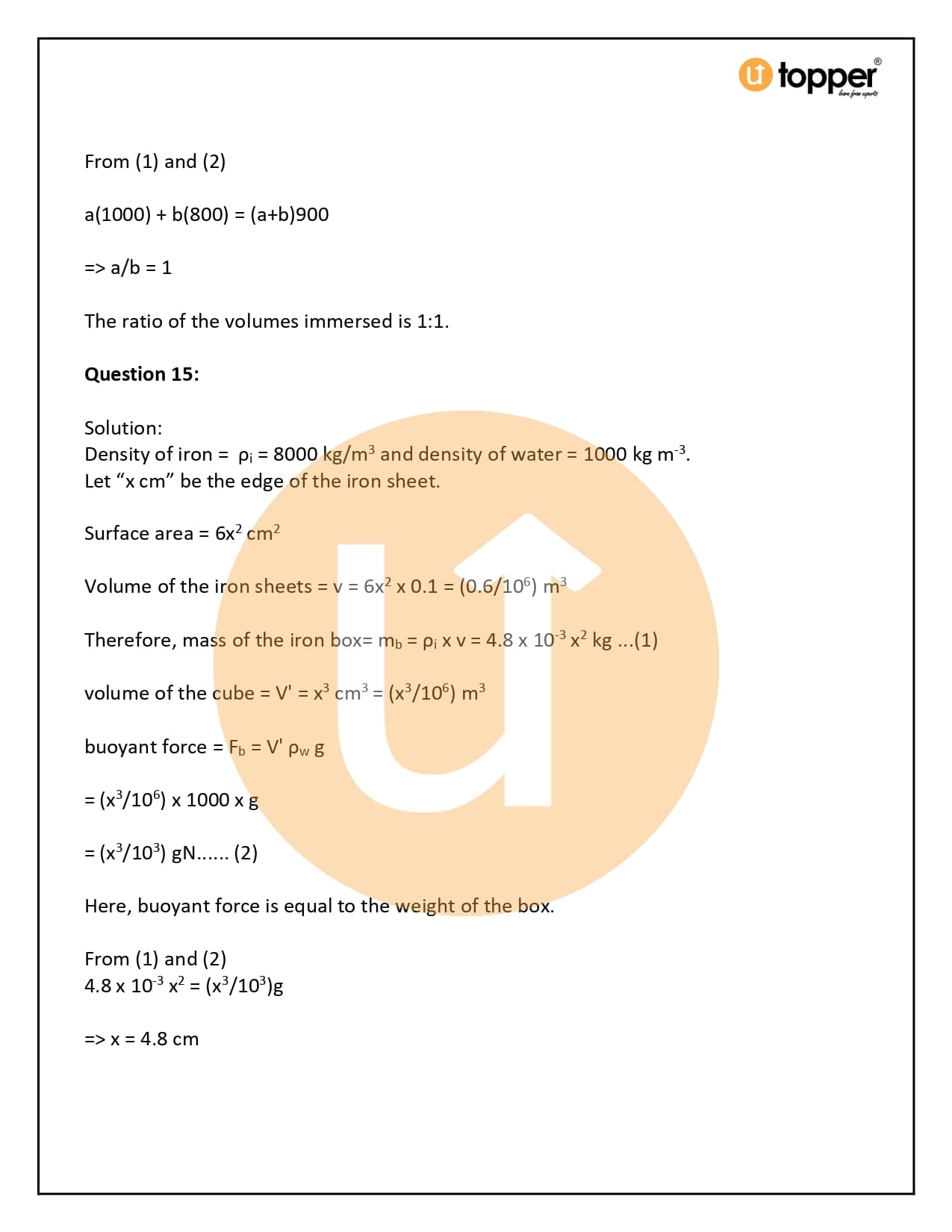
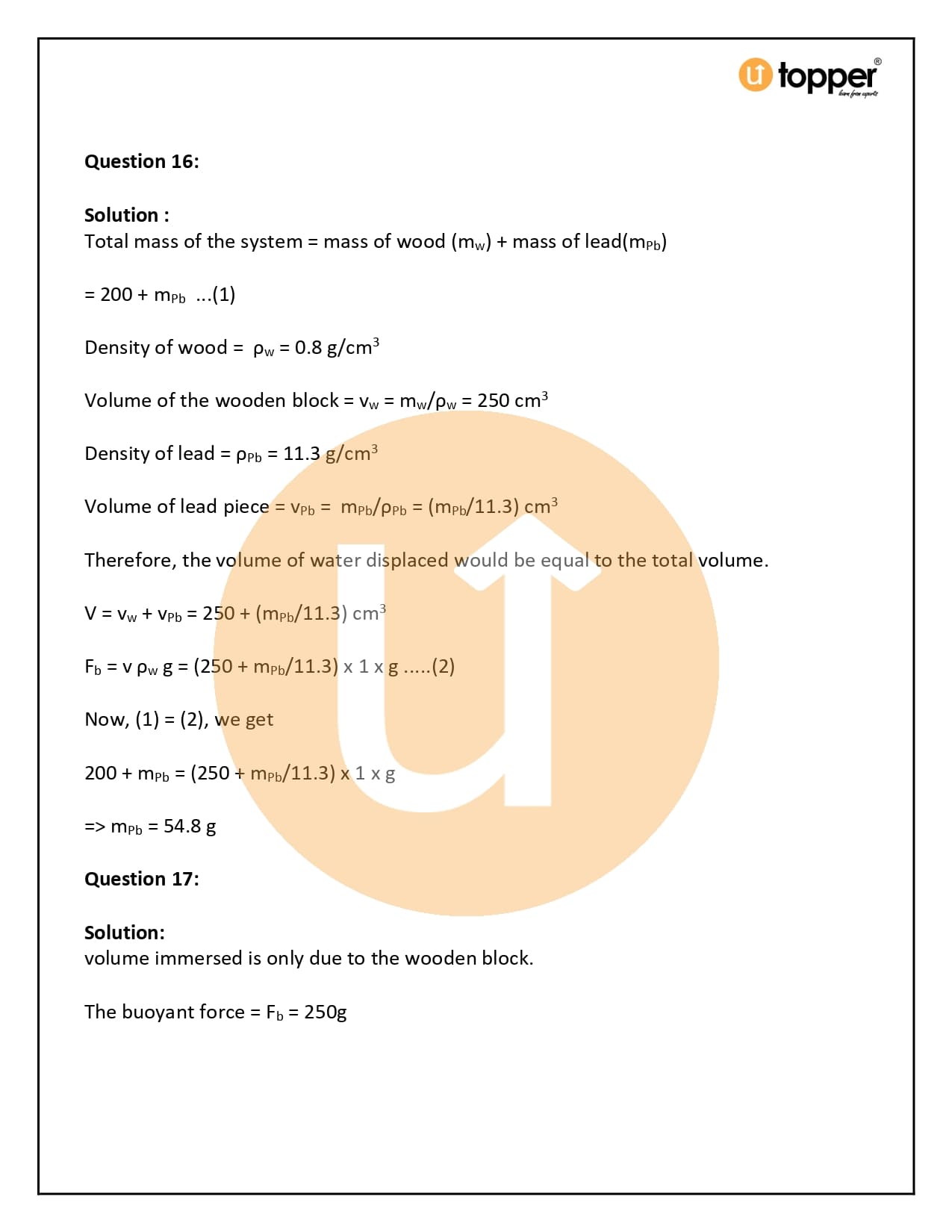
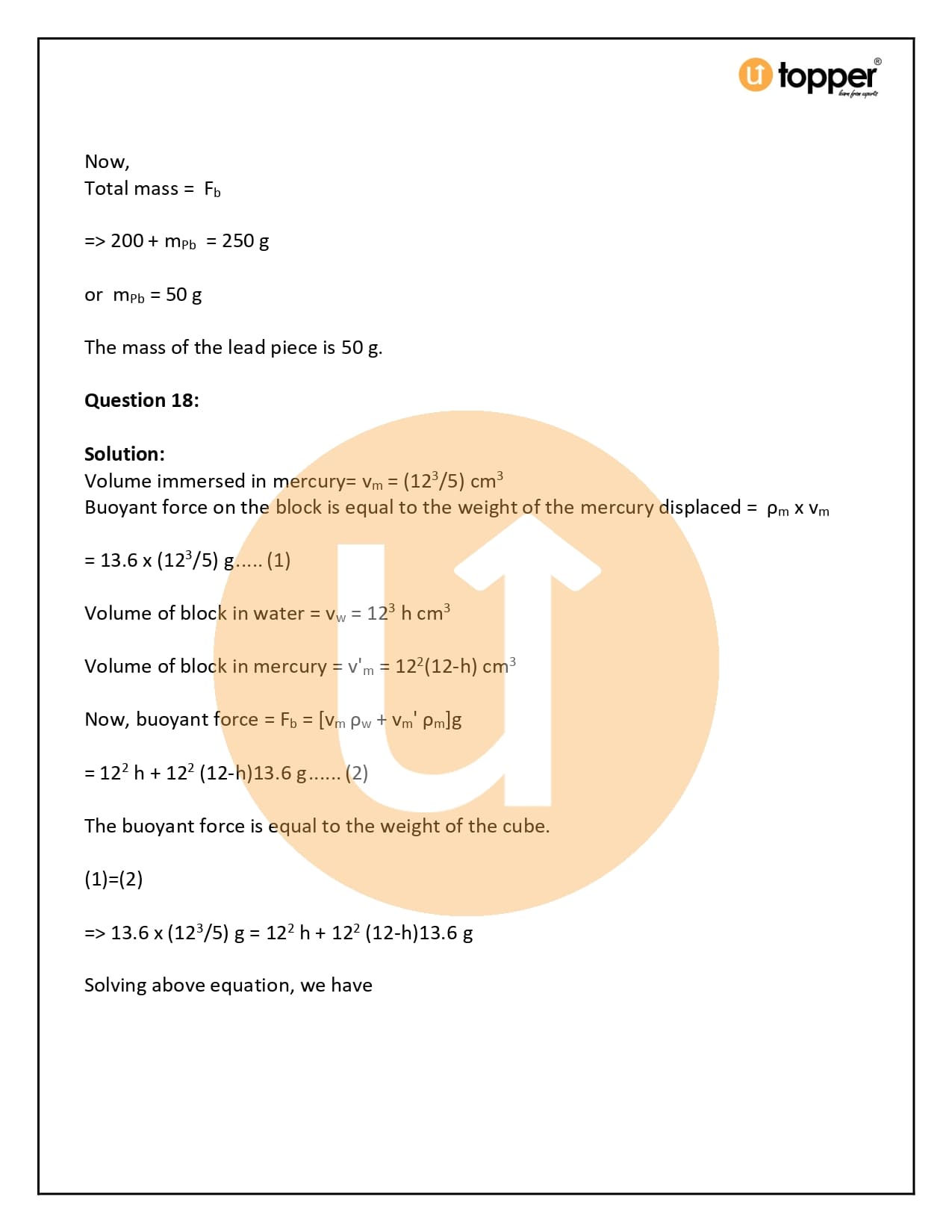
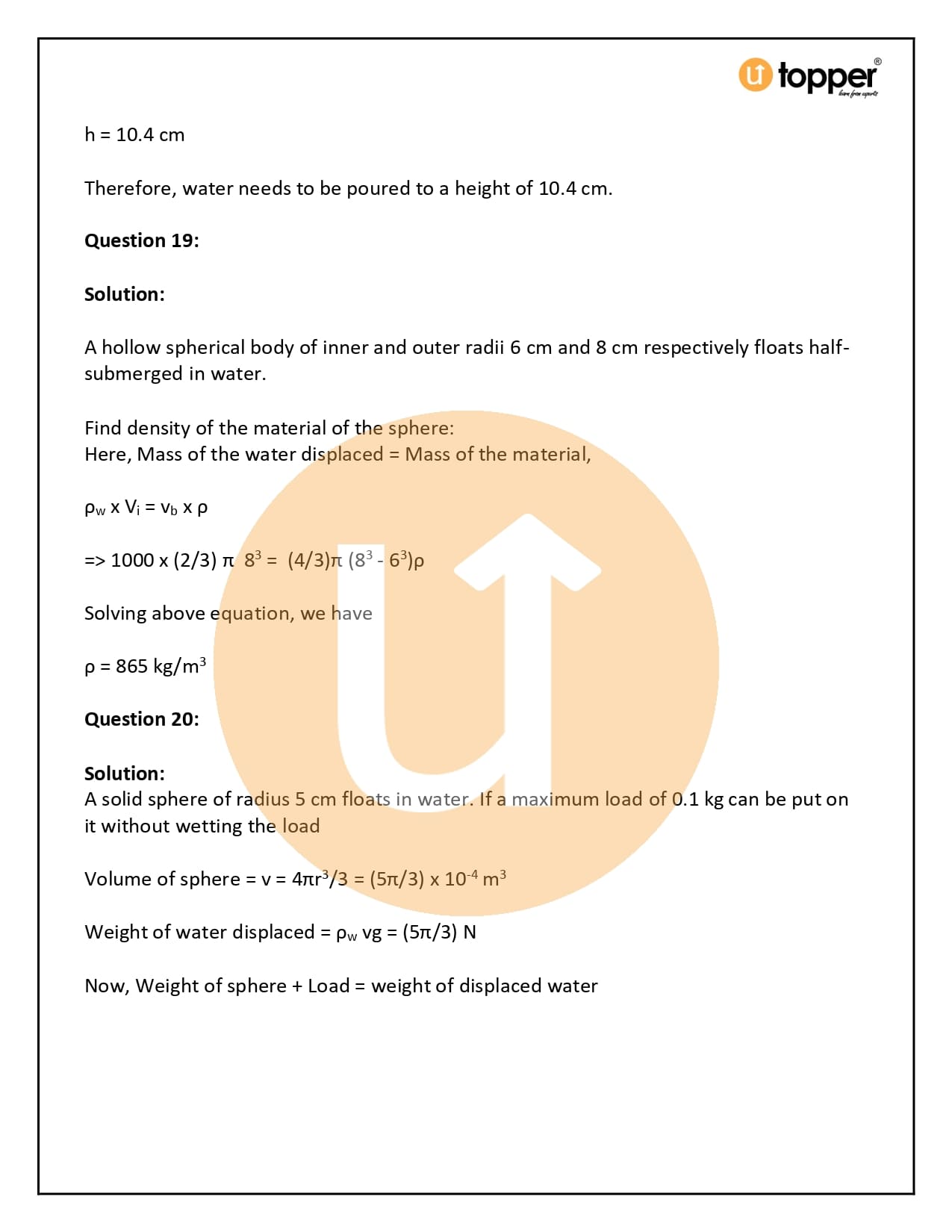
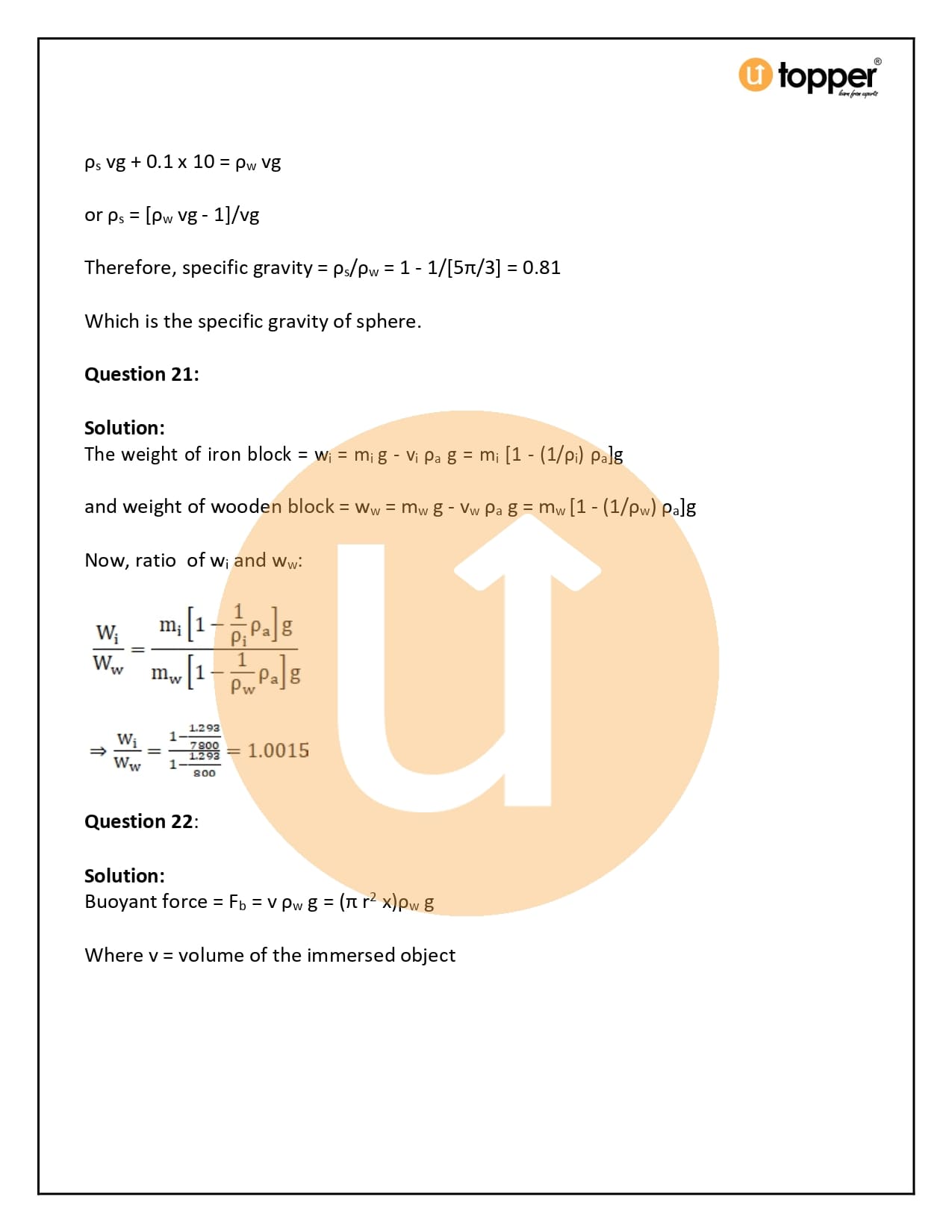
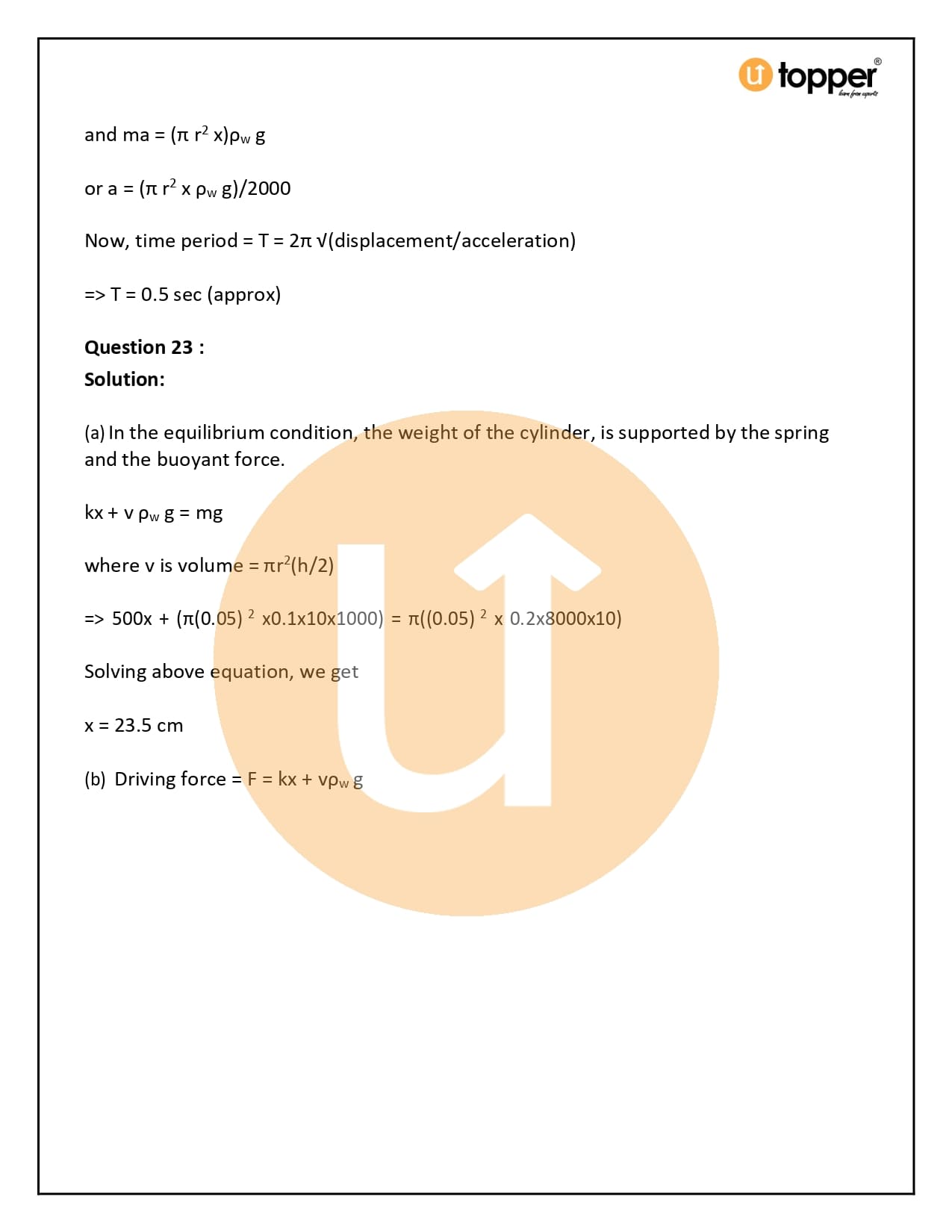
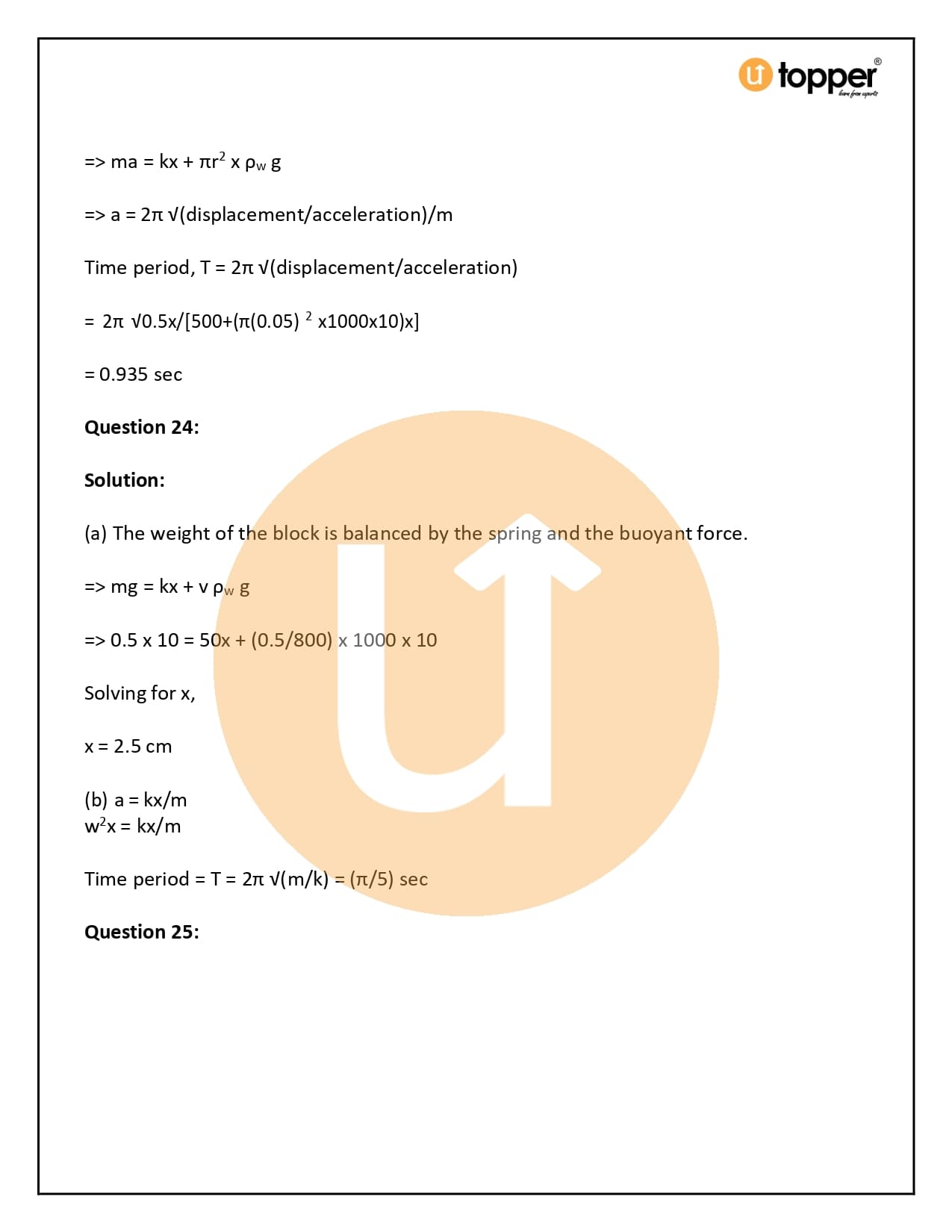
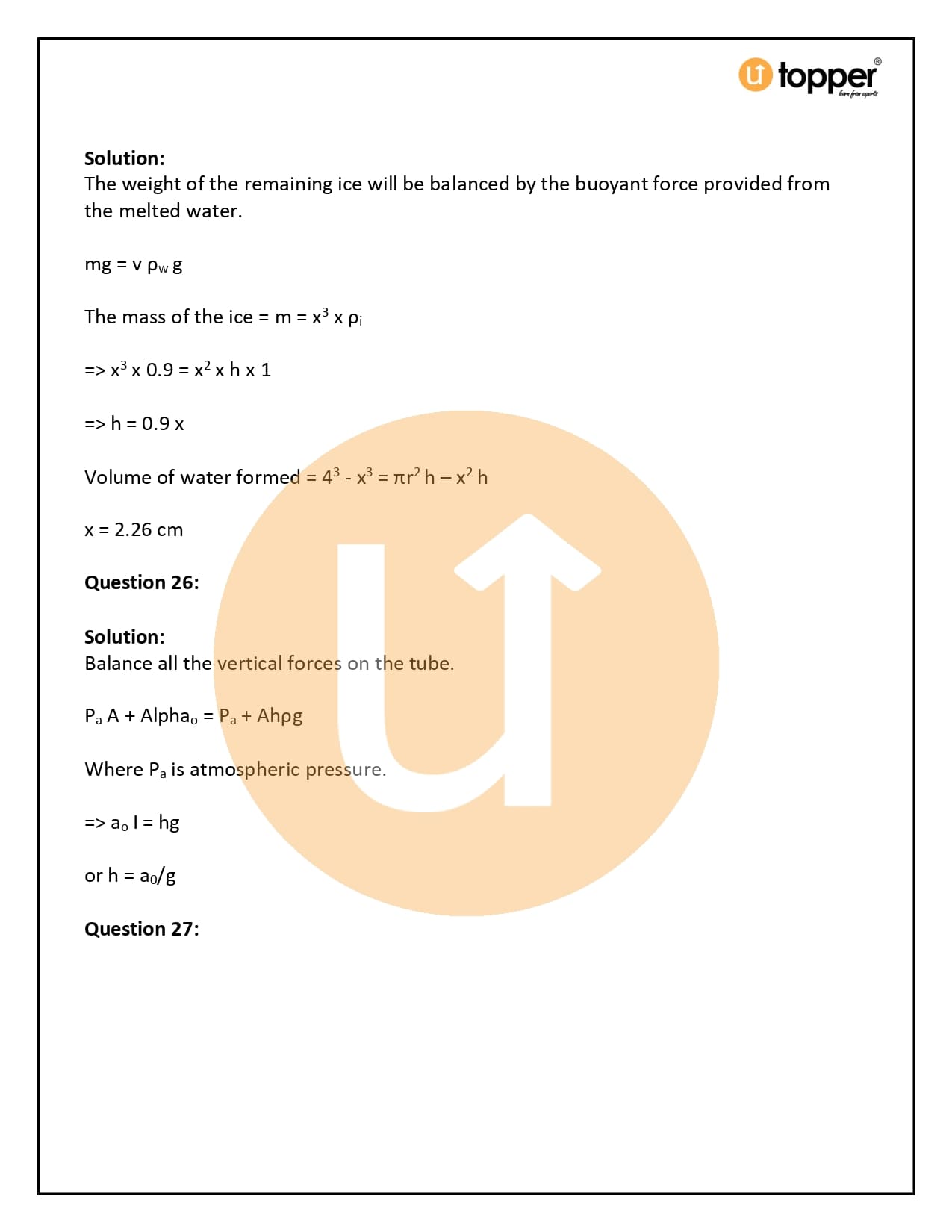
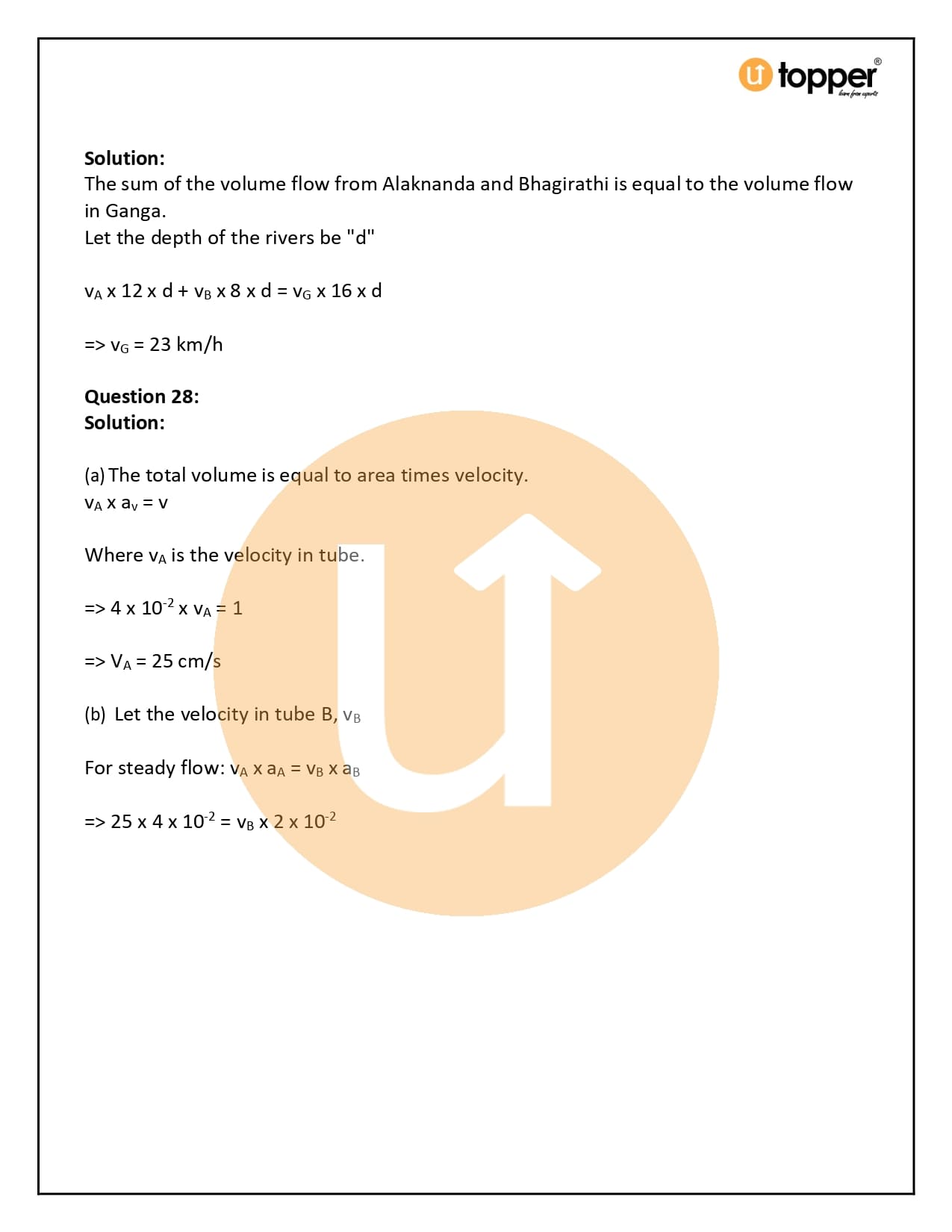
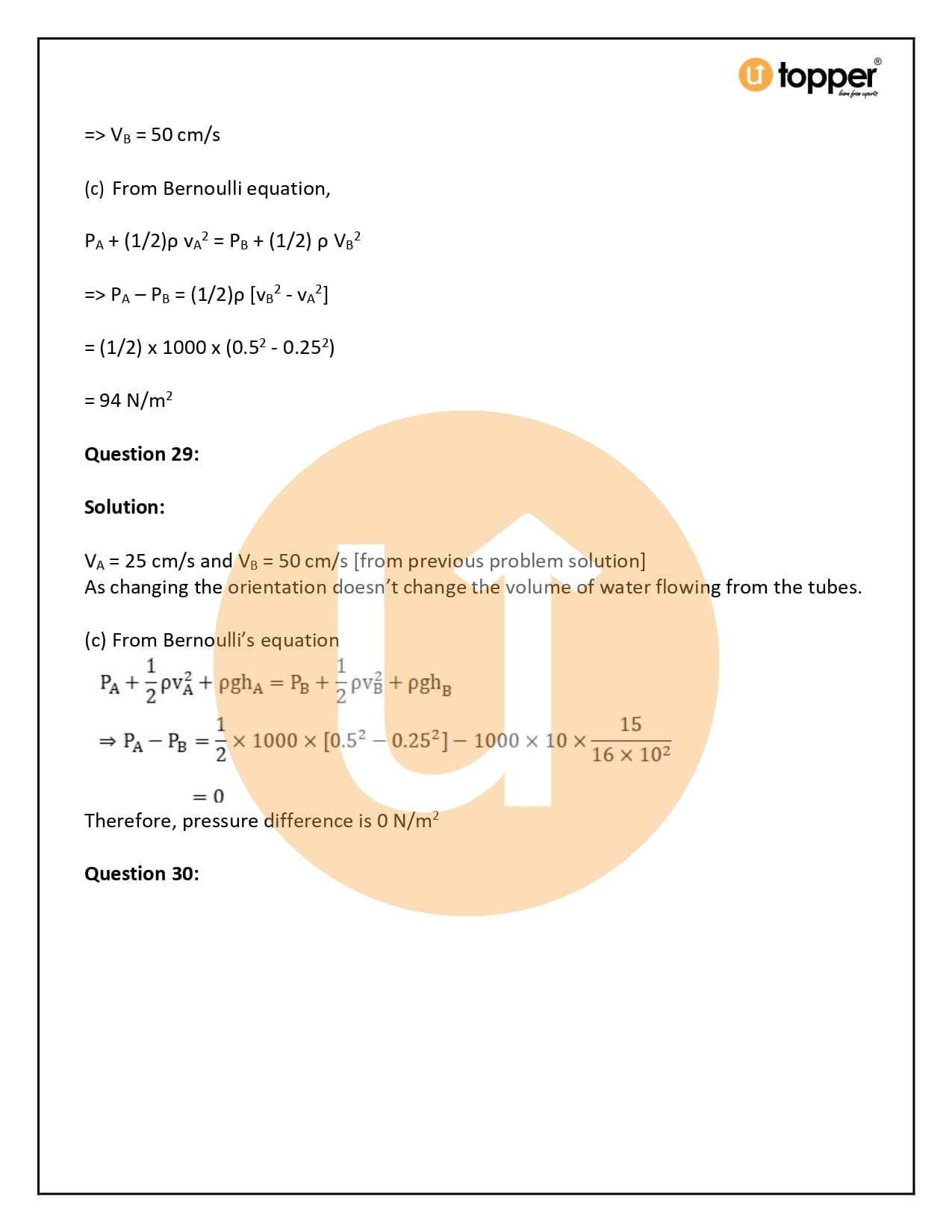
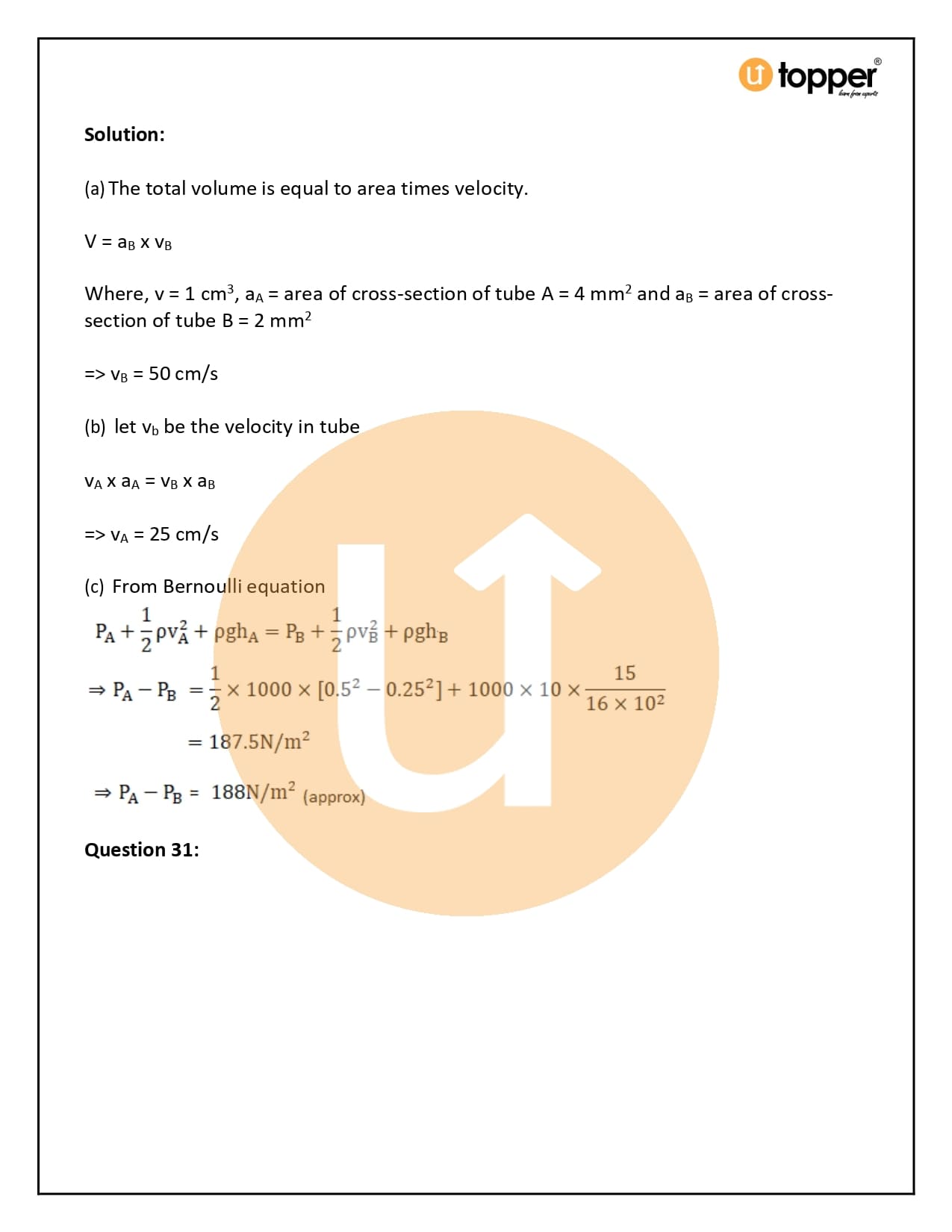
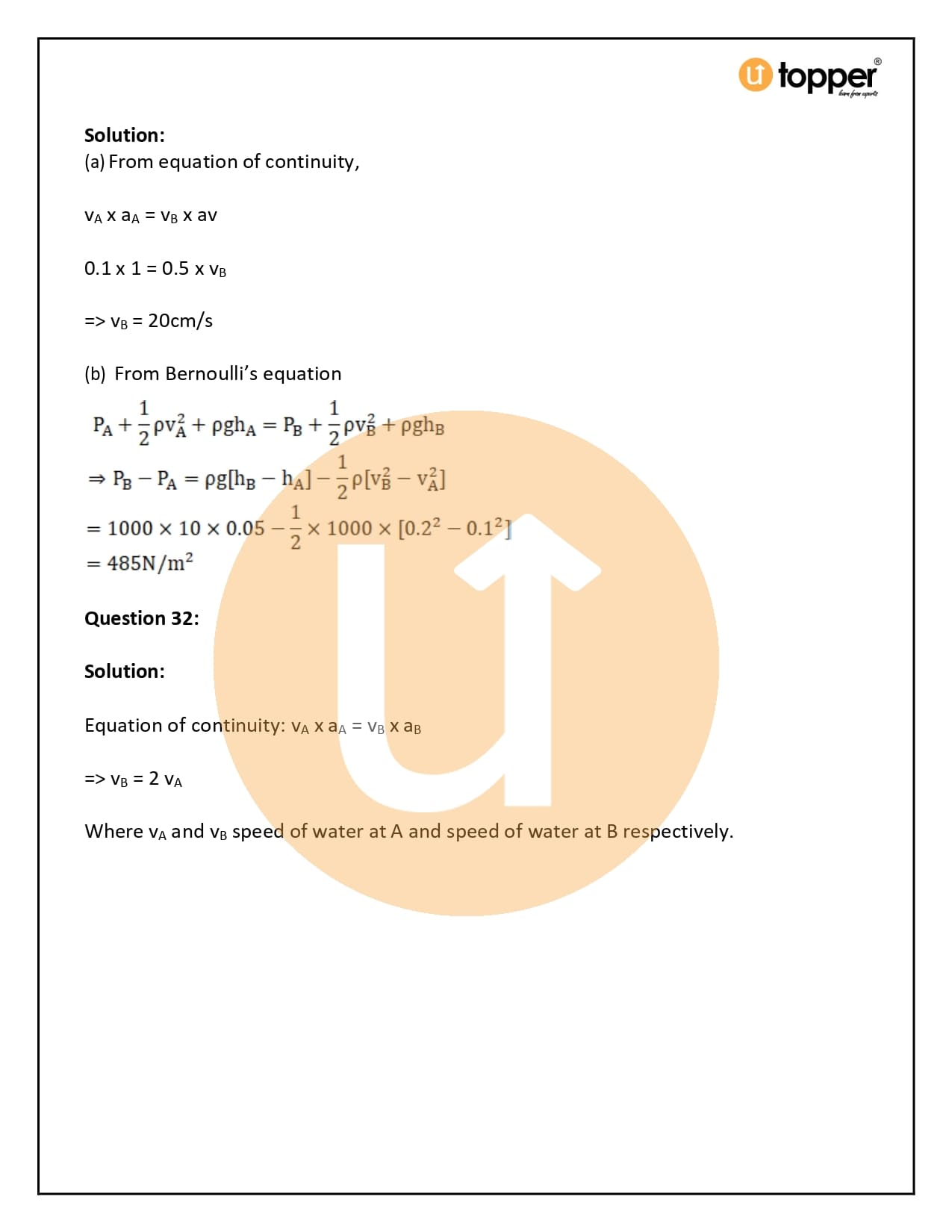
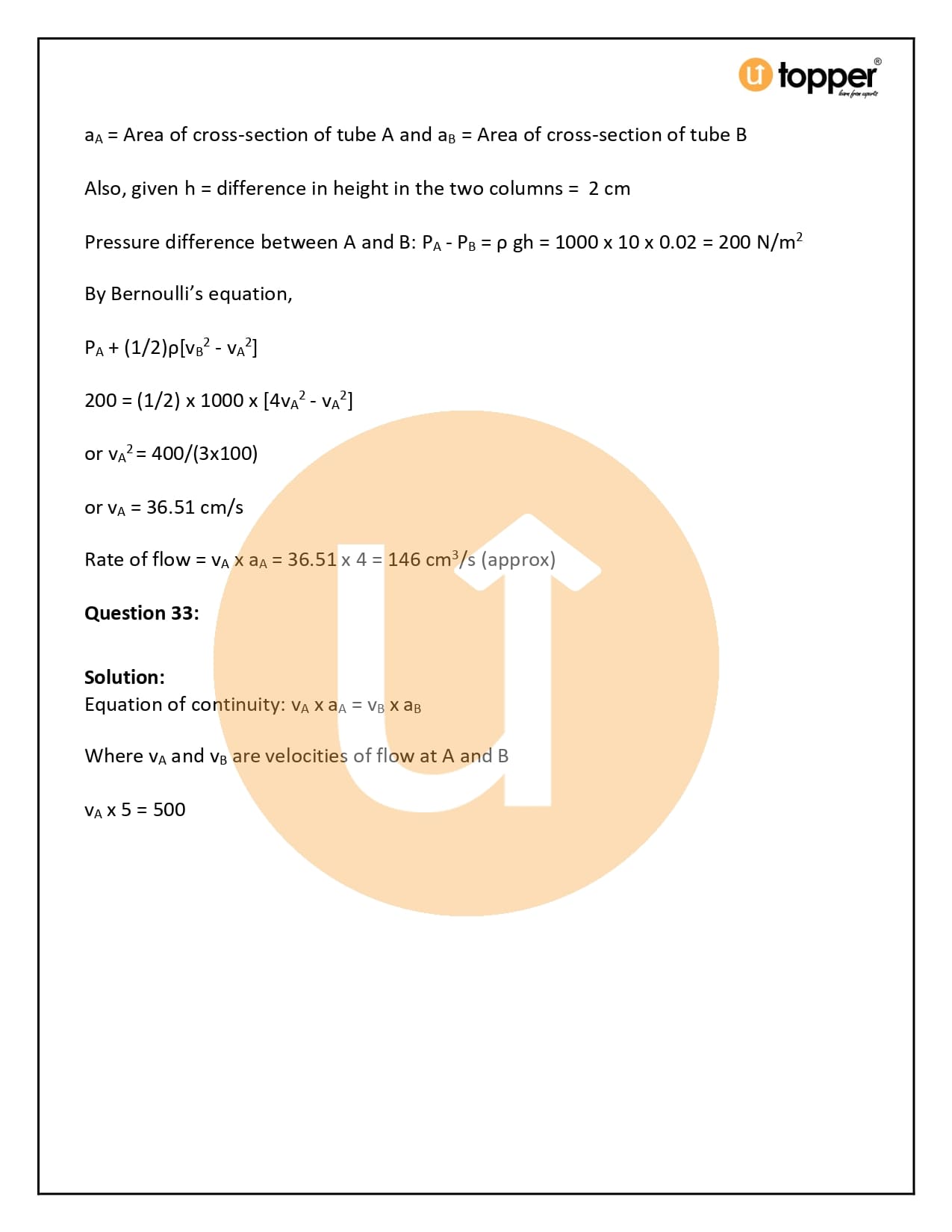
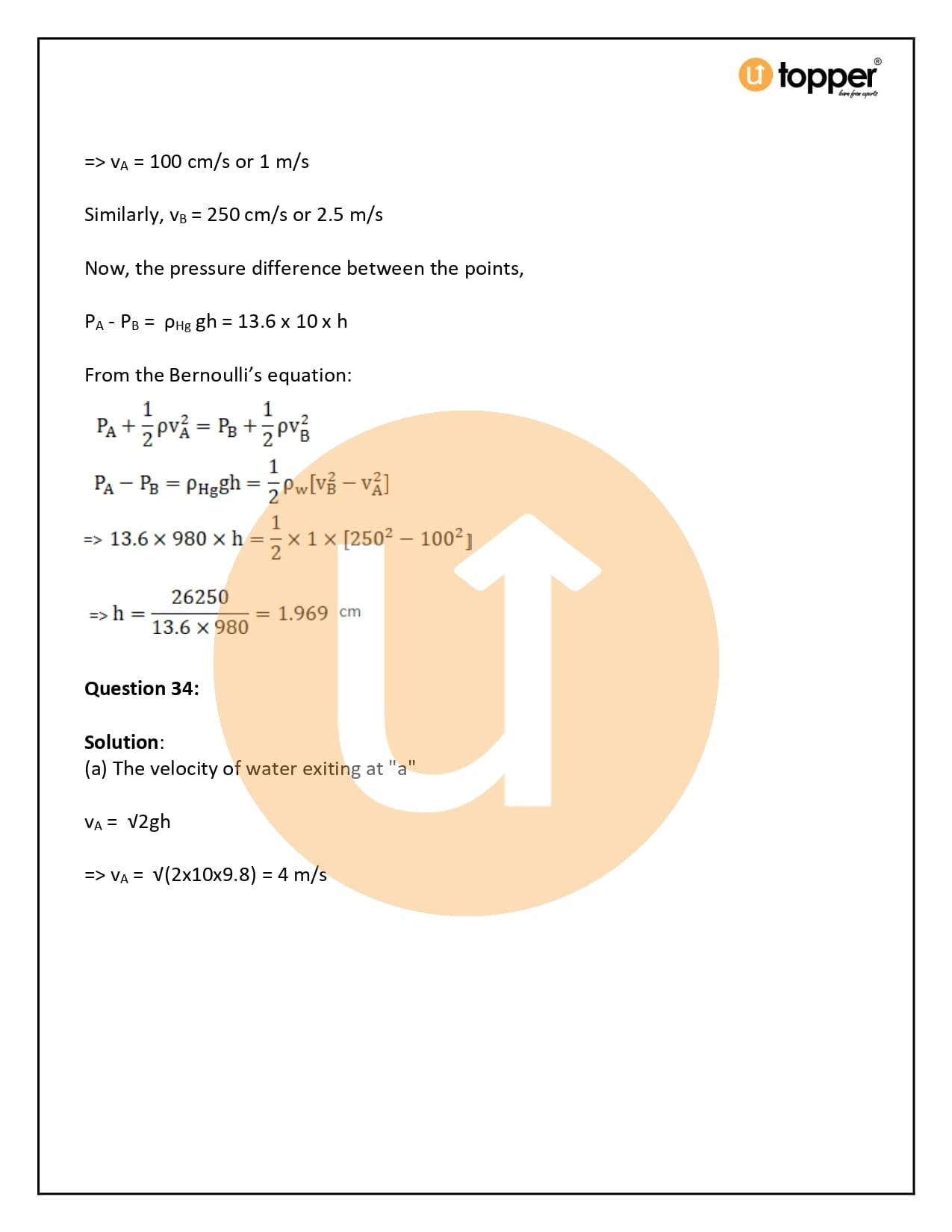
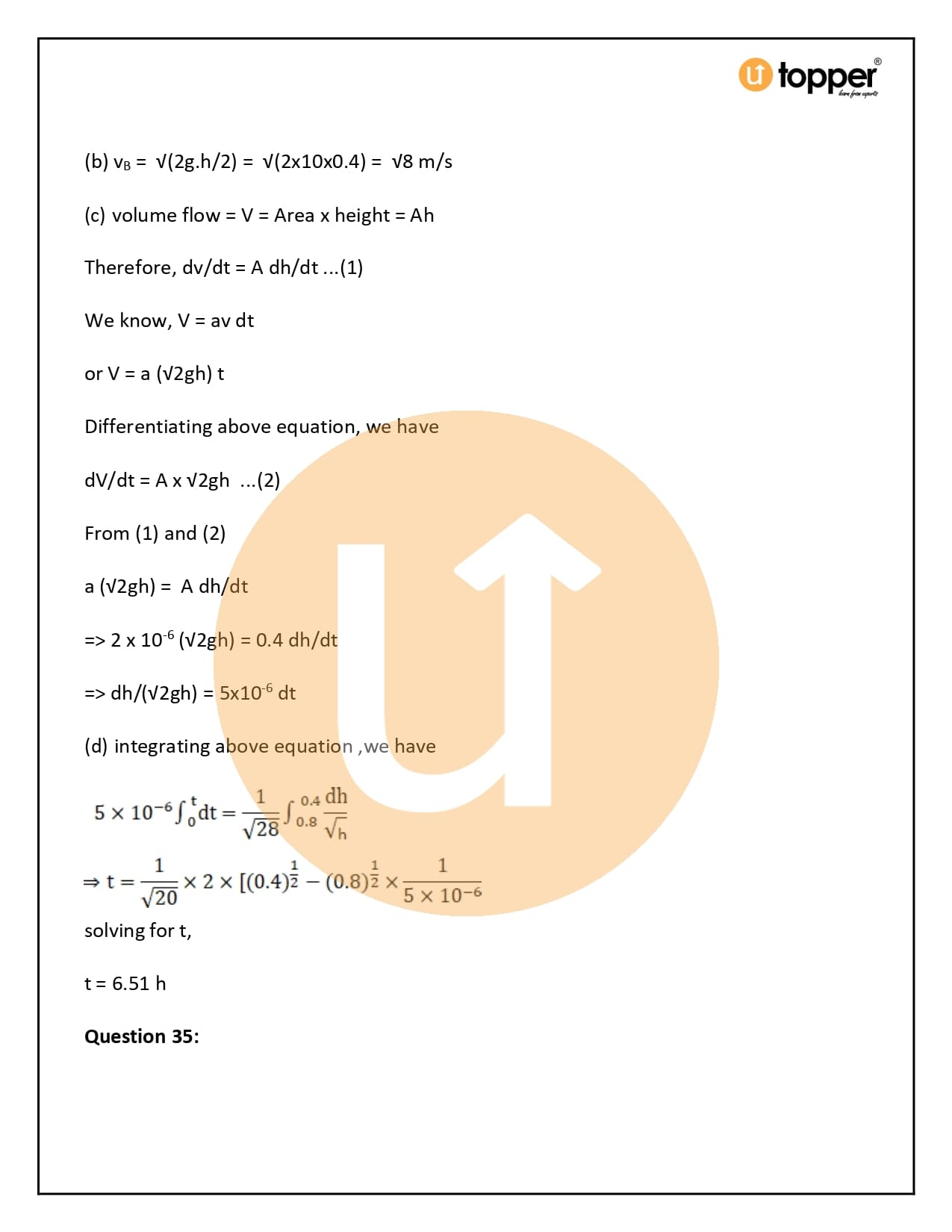
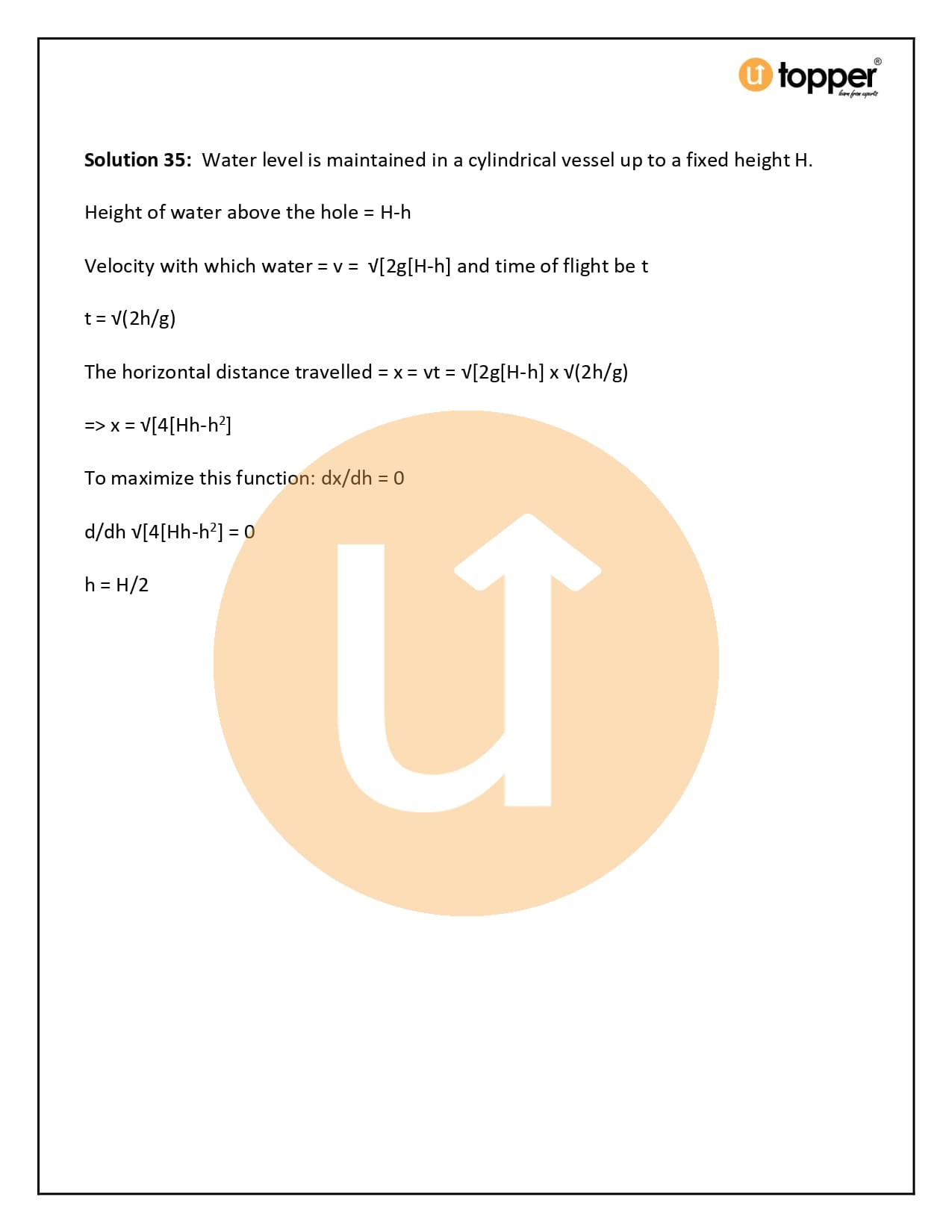
HC Verma Class 11 Physics Solutions
Chapter 1 – Introduction to Physics
Chapter 2 – Physics and Mathematics
Chapter 3 – Rest and Motion Kinematics
Chapter 4 – The Forces
Chapter 5 – Newton’s Laws of Motion
Chapter 6 – Friction
Chapter 7 – Circular Motion
Chapter 8 – Work and Energy
Chapter 9 – Centre of Mass, Linear Momentum, Collision
Chapter 10 – Rotational Mechanics
Chapter 11 – Gravitation
Chapter 12 – Simple Harmonics Motion
Chapter 13 – Fluid Mechanics
Chapter 14 – Some Mechanical Properties of Matter
Chapter 15 – Wave Motion and Waves on a String
Chapter 16 – Sound Waves
Chapter 17 – Light Waves
Chapter 18 – Geometrical Optics
Chapter 19 – Optical Instruments
Chapter 20 – Dispersion and Spectra
Chapter 21 – Speed of Light
Chapter 22 – Photometry

About the chapter: HC Verma Class 11 Solutions Chapter 13
Chapter 13 of HC Verma Solutions for Class 11 is about fluid mechanics. Fluid mechanics deals with both the statics and dynamics of fluids. Fluid statics is the study of fluids when they are at rest, and fluid dynamics is the study of how forces affect the movement of fluids.
There are three main types of matter: solid, liquid, and gas. Solids have strong forces between their molecules, so their shape and size don’t change easily. This force isn’t as strong in liquids, so it’s easy to change their shape. Even though it’s easy to change the shape of a liquid, it’s not so easy to change the volume of a given mass of liquid.
It takes a lot of work to change how dense liquids are. There aren’t many forces between molecules in gases, so it’s easy to change their shape and density. Fluids are made up of both liquids and gases. Fluids are things that can flow.
Fluid Mechanics, Chapter 13 of Class 11 Physics
Fluids are things that can move when an outside force is put on them. Fluids are things like liquids and gases that don’t have a shape of their own.
The force has a bigger effect when it acts on a smaller area. This idea is called “pressure.” This is also why things are easy to cut with a knife with a sharp end. The SI unit of pressure is the Nm2. It is called Pascal (Pa). The atmosphere (atm) is a common unit of pressure (1 atm is equal to 1.013 105 Pa).
Pascal’s Law says that,
- The external static pressure that is put on a liquid that is confined is spread or sent out evenly in all directions.
- A pressure difference can be measured with an open-tube manometer.
- At any point, the pressure of the atmosphere is equal to the weight of a column of air with a unit-sized cross-section that goes from that point to the top of the atmosphere. It is at sea level
- 1 atm is equal to 1.013 105 Pa.
A mercury barometer is used to measure how much pressure is in the air. It has a long glass tube that is closed at one end and filled with mercury. The tube is turned upside down into a mercury trough.
When an outside force is put on any part of a fluid inside a vessel, the force is sent in the same amount in all directions and does not change in strength. This is Pascal’s law about how the pressure of a fluid moves. We can use this law in many ways in our daily lives.
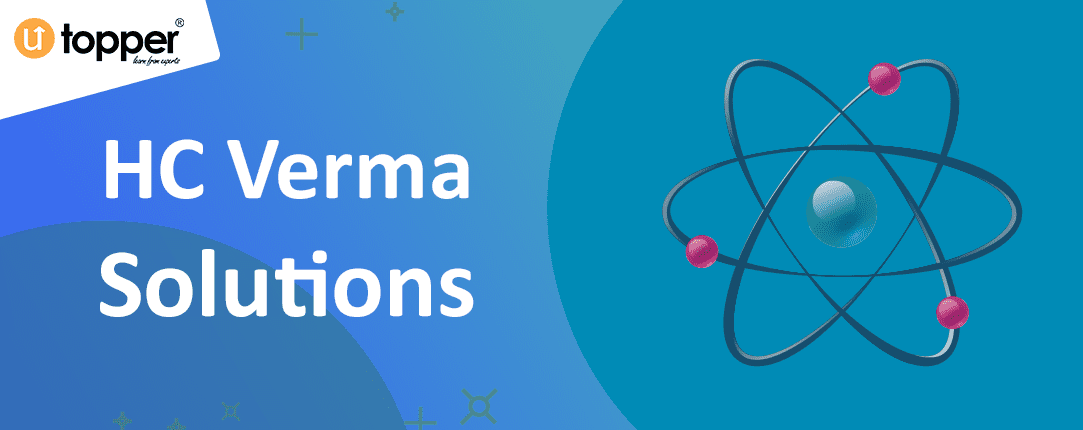
Features of Utopper HC Verma Solutions for Class 11 Chapter 13
- Students can solve similar problems on their own with the help of HC Verma’s answers in the Utopper.
- Students are given answers that are correct and easy to understand.
- The solutions are given to match the level of understanding of a student in that class.
- The HC Verma solutions that Utopper gives the answer to and explains all of the questions in each chapter.
FAQ ( Frequently Asked Questions )
1. Where can I get HC Verma solutions?
Ans – Utopper offers HC Verma answers that are correct and have been worked out by experts. Our website, utopper.com, is where you can find HC Verma solutions. This is free, and if you study these answers, you can pass the JEE.
2. How Should I Study HC Verma For IIT JEE Preparation?
Ans – Students have used this book to study for JEE for the past twenty years, and they have all passed JEE. So, this book can’t be ignored. Once you’ve figured out how to solve the example problems, you can compare your answers to those in the book. If your answer is right, compare it to the solution to make sure you used the right steps to get there. If your answer is wrong, look at the other solutions to figure out “why” your answer is wrong. If you made a math or procedure mistake, you’ll need to find a way to fix it if you want to do well on an exam like the JEE.
3. Is HC Verma enough for the JEE Advanced?
Ans – Is the H.C. Verma book enough to prepare for the JEE Main and Advanced? H.C. Verma is a good book for getting ready for the JEE, and it goes into detail about each topic.
4. Who is better: SL Arora or HC Verma?
Ans – If you want to take the boards, SL Arora will do fine, and you won’t have to take HCV. But if you are studying for competitive exams like IIT/JEE mains or advanced, you should definitely go for HCV because it has more advanced problems and will help you solve more complicated problems.
